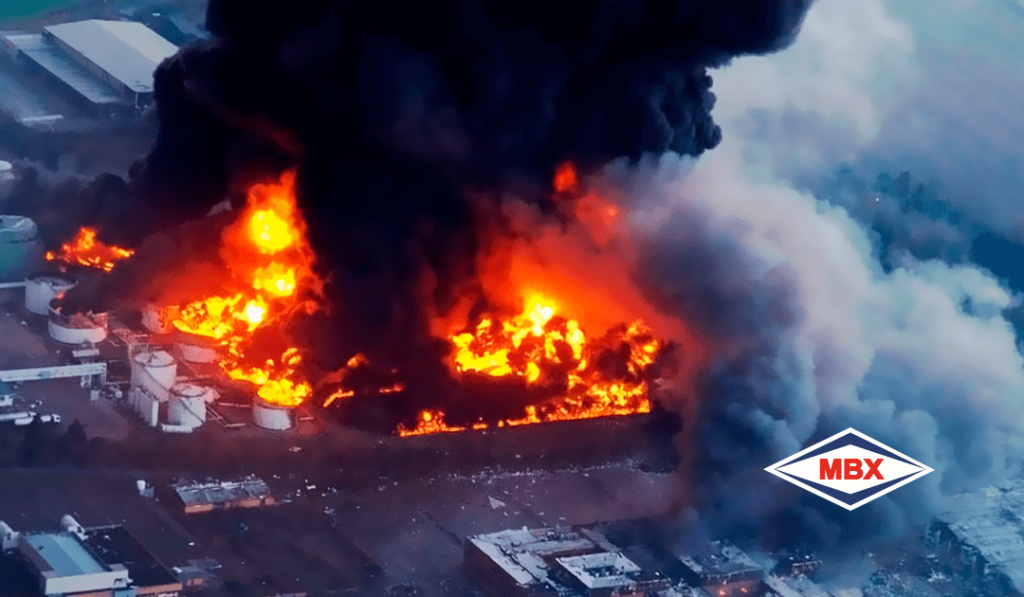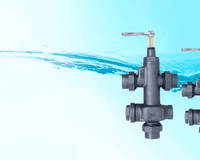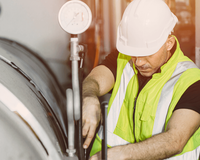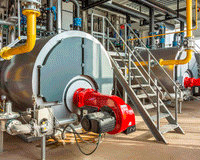Industrial Boilers: Be aware of the 7 main causes of explosion
Overheating is one of the main causes of explosions in industrial boilers. When exposed to excessive temperatures, the equipment's wall resistance may be compromised, leading to explosions.
However, this situation is the final part of the problem. After all, there are many factors that occur before the accident, such as warping, bending and bulging in the structure of these steam generators.
Want to know more? We have listed the 7 main causes of boiler explosions that you need to be aware of to avoid this problem.
Excessive pressure increase in industrial boilers
Boilers are equipment that, by their nature, can withstand extremely high internal pressures. However, when the value exceeds the maximum limit, an explosion can be a tragic consequence. Therefore, every boiler must have good safety valves, and these keep maintenance up to date .
When they do not work correctly, there can be an indiscriminate increase in internal pressure caused by mechanical failures and manufacturing defects, which increase the risk of explosions.
Thermal shock inside boilers
Thermal shocks become frequent when stopping and restarting the combustion chamber, responsible for heating the water (check if this makes sense, it is very technical and the original was not good).
Another relatively common situation that can cause thermal shocks occurs when the boiler receives cold water at a hot water inlet or vice versa. As a result, the temperatures of the boiler tubes vary considerably, generating contractions and expansions that result in thermal shock.
Reaming Defects
Mandrel is characterized as the operation of expanding the tubes along the holes in the boiler mirrors. It is through mandrel that the tubes will be anchored with the necessary watertightness.
However, several factors (such as foreign bodies on the external surface of the ends of the tubes or walls) can cause this tightness to be compromised, reducing the resistance of industrial boilers.
Corrosion on the internal walls of the boiler
Internal corrosion occurring on boiler plates is one of the major factors that reduce boiler capacity, increasing the risk of explosions. It acts as a factor in reducing the thickness of surfaces subjected to high pressures.
In industrial boilers, the corrosive process occurs in different ways, such as internal corrosion, generalized oxidation of iron, galvanic corrosion, corrosion by differential aeration, saline corrosion, among many other occurrences.
It is worth remembering that corrosion in industrial boilers can only be detected through internal inspections, which are mandatory by law, the frequency of which is set out in NR-13.
Welded Joint Failures
In its manufacturing process, every boiler goes through welding processes, which need to be carried out well, since it will be used in tubes, mirrors, pipes, reinforcements, stays and many other parts.
Therefore, any failure in making welded joints will certainly increase the risk of explosion, as these are the areas of the equipment that tend to have the least resistance.
To avoid this problem, you need to choose good boiler suppliers, in addition to always following the ASME IX Standard, which relates to the qualification of welders and welding operators.
No monitoring of water quality
The quality of the feed water is one of the factors that must be carefully examined to avoid, in more serious cases, the occurrence of explosions.
Such care is important, as sources with high concentrations of dissolved salts tend to form incrustations on surfaces, causing these regions to overheat and increasing the possibility of explosions.
Thus, internal boiler waters that present total hardness, excess silica and total dissolved solids tend to form large plates with insulating characteristics on the walls, tubes and sides, resulting in a loss of heat exchange efficiency and, mainly, being a factor that prematurely weakens carbon steel, reducing its resistance.
Modification in the steel structure
This is a problem that occurs due to the production of excess steam during operation.
When the equipment heats up excessively, the steel can become covered in bubbles, as the gases present in the superheated water (oxygen and hydrogen) are released. The H2 from this release will react with the carbon, producing methane gas, which in turn will cause the steel to blister.
In view of all these occurrences, be careful to avoid explosions in your boilers. Be aware of the up-to-date maintenance , follow all manufacturer recommendations and purchase equipment with proven quality.
Want to know more about industrial boilers? Then find out what NR-13 is and understand its importance .






